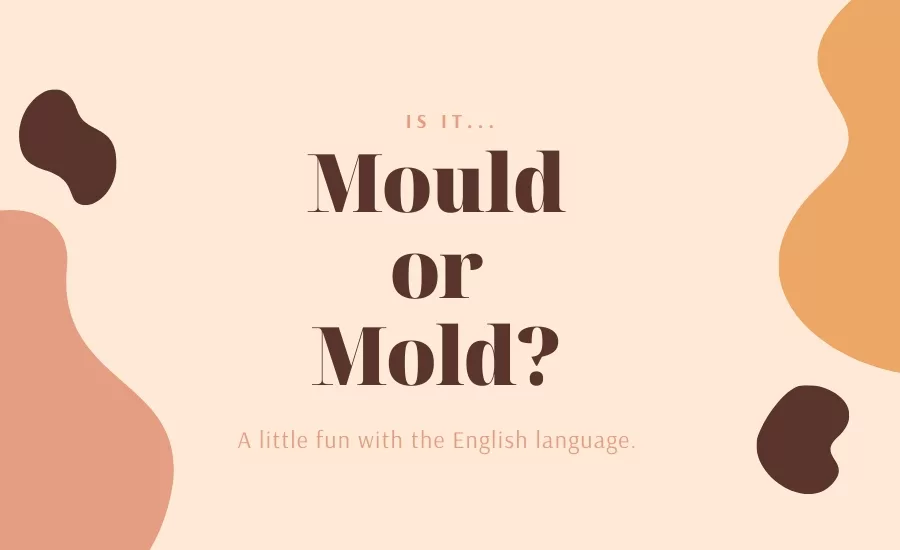Is it Mould ... or Mold?

We Americans and our British cousins both speak the same language. No news there. So, we should understand each other clearly. Unfortunately, that’s not always true. For instance, a heavy cockney accent can be as difficult to understand as Swahili. And even some of the British import TV shows require you pay close attention to fully understand what they’re talking about. (I sometimes turn on closed captioning!)
Besides the pronunciation, there are also differences in the way some of those words are written. British and American English have different rules when it comes to spelling. They may sound the same, but sometimes use different or extra letters. Many of these differences date back to a time when spelling standards hadn’t yet developed. For instance, some spellings seen as "American" today were once commonly used in Britain and some spellings seen as "British" were once commonly used in the United States.
For example, Americans omit the U that appears in some British words as a second vowel directly before a consonant. Therefore, you end up with these different spellings:
| British | U.S. |
| Colour | Color |
| Flavour | Flavor |
| Humour | Humor |
| Labour | Labor |
| Neighbour | Neighbor |
| Mould | Mold |
For the purposes of this article, let’s concentrate on that last term. American English has no word spelled m-o-u-l-d, and British English has no word spelled m-o-l-d. In other words, the word referring to:
- the various fungi that grow on organic matter (noun)
- a frame for shaping something (noun)
- to form (an object) out of pliable material (verb)
... are spelled the same in all uses, but the spelling depends on the variety of English. And although the spellings differ, the meanings are the same.
The roots of the British spelling can be found in the world mould originated from late Middle English: probably from a past participle of moul ‘grow mouldy’, and/or of Scandinavian origin; compare with Old Norse mygla ‘grow mouldy’. One more sense of the word indicates its origin from Old English molde, which has a Germanic base meaning ‘pulverize or grind’; related to meal.
To help you remember whether to use mold or mould, just recall that mould contains a U, like United Kingdom. That way it may be easier to keep the words straight in your mental vocabulary.
But however you spell it, mold can cause respiratory problems and/or structural damage in a home or business. If you do mold remediation, be sure to explain your mold removal project in plain (American) English to set your clients mind at ease.
Looking for a reprint of this article?
From high-res PDFs to custom plaques, order your copy today!







